Podcast (will-call): Play in new window | Download
Subscribe: RSS
In the wake of the November election, people across the country have seen fear and anger and exclusion become part of a national public conversation. Many people are sharing the experience of feeling that they do not belong in their familiar places. It’s called othering — making someone feel pushed to the edges, unwanted or different. It can happen in daily meetings and conversations, at work, at school, even at home.
In the Berkshires, movements are growing in response, art and lectures and performances and rallies, to explain what othering means and what it looks like — and to draw people together instead.
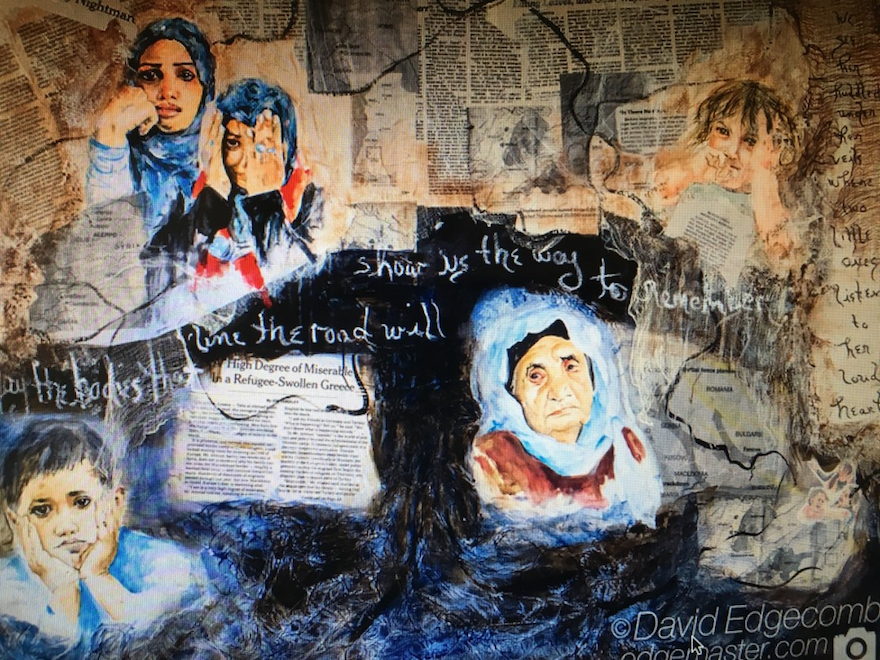
People are saying in different ways, I feel threatened. I feel alone. And people are saying that hate is not mine. I want to stand with you. I want to live in a country where we can all live and love and work, pray or not, speak and play music. People are saying we need to talk to each other.
In the Berkshires, efforts are growing to bring people together. In Pittsfield, on a November afternoon, young WordxWord poets and storytellers reflected on how it felt to be excluded or pushed to the edges, as part of “Othering,” a month-long show curated by the Berkshire Art Association at the Lichtenstein Center for the Arts.
In Great Barrington, Asma Abbas, Associate Professor of Politics and Philosophy at Bard College of Simon’s Rock, invited Moustafa Bayoumi, American Book Award–winning writer and professor of English at Brooklyn College — who wrote one of the most re-tweeted tweets of the 2016 USA presidential debates, according to Twitter—to speak about Muslim American experiences in the last 15 years.
In North Adams, Rabbi Rachel Barenblat, the spiritual leader of Congregation Beth Israel, joins Rabbi David Markus, her co-chair of Aleph, the central organization of the international Jewish Renewal movement, in a call for solidarity. If a national effort to register Muslims becomes real, they are calling on all Americans to register.
Nick Cave’s “Until”
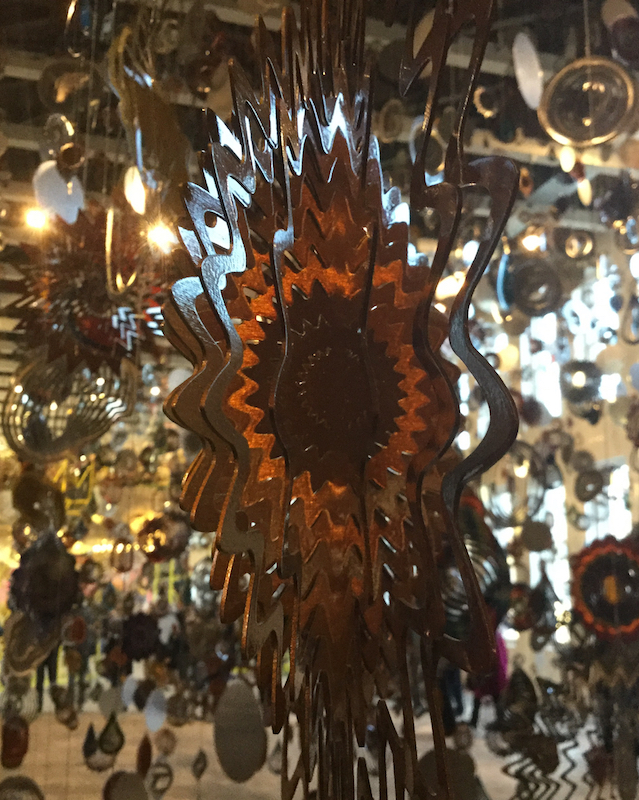
And in December of 2016, MASS MoCA, offered free admission for Berkshire residents until the solstice, as Nick Cave’s installation, Until, opened to take a close look at the ideal of “innocent until proven guilty” — and what happens when it becomes “guilty until proven innocent.”
Soprano Brenda Wimberly and organist Sereca Henderson perform at the opening of Nick Cave’s ‘Until,’ at MASS MoCA. His installation fills the Rauschenberg gallery, and everyone who walks in stops at the doorway. The room is as large as a football field. And it is full of light.
It’s like walking into an optical mobile. It’s a maze of stars and spirals and suns on 16,000 strings. They spin like tops, and they transform from pinwheeling color to faint lines, until they become invisible. In some of them, at the core, he has set the image of a hand gun.
Nick Cave is known for Soundsuits, wearable sculptures that cover the whole body, and he often performs in them. But here he has created something new. It’s a landscape. It’s a cloudscape made of chandelier crystal. It’s a place where he invites other people to perform.
Benjamin Clementine gave a concert on opening night.
Nick Cave created this installation holding in mind the lives and deaths of Eric Garner, Oscar Grant, Trayvon Martin, Tamir Rice, Yvette Smith and Michael Brown and more like them. Mass MoCA curator Denise Markonish speaks about his work.
Moustafa Bayoumi and Asma Abas
John Coltrane’s ‘A Love Supreme,’ a jazz classic from 1965 has echoes of Middle Eastern scales in its improvisation, and echoes of Islamic prayer in its inspiration, professor Moustafa Bayoumi writes in his 2015 collection of essays, “This Muslim American Life: Dispatches from the War on Terror.”

Coltrane often performed with Muslim musicians, he says, and anyone with an ear attuned to Islamic influences can hear them in Coltrane’s words and music.
He quotes Coltrane’s liner notes: “No Matter what … it is with God. He is Merciful. His way is in love, through which we all are. It is truly — a love supreme.”
Moustafa Bayoumi is an internationally recognized journalist. He is a columnist for The Guardian; his writing has appeared in journals from the New York Times to the Nation; and he has appeared on CNN, FOX News, National Public Radio and many other media outlets around the world.
He is an associate professor of English at Brooklyn College, and in 2008 he won an American Book Award for “How Does It Feel to Be a Problem: Being Young and Arab in America.”
.
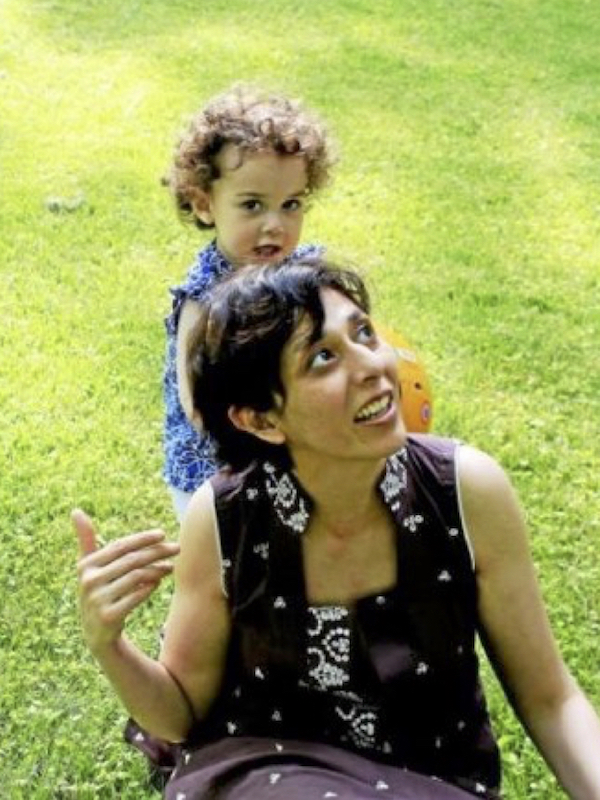
Emily H. Fisher Faculty Fellow at Bard College at Simon’s Rock; photo courtesy Asma Abbas.
.
.
.
“How Does It Feel to Be a Problem?” takes its title from writer, Civil Rights activist and Great Barrington native, W.E.B. DuBois, who asks that question in Souls of Black Folk.
In his book, Bayoumi tells the stories of seven young men and women in their 20s living in Brooklyn after 9/11.
Rasha and her family were imprisoned without trial and without evidence; Sami served in the military in Iraq; Yasmin fought discrimination in her diverse high school — and won.
In December, professor Bayoumi came to Bard College at Simon’s Rock in Great Barrington to talk with professor Asma Abbas, and her students and the community, about the experience of being Muslim American in the past, in the last 15 years and today.
Many Americans misunderstand a great deal about what Muslim Americans believe and how they live their lives, he said.
To begin with, Muslim Americans have lived in this country for almost 400 years.
Aleph takes a stand against othering
Rachel Barenblat of Williamstown is the rabbi and spiritual leader of Congregation Beth Israel in North Adams, and she will serve as the interim Jewish Chaplain at Williams College in the spring semester. She is also co-chair of Aleph, the central organization of the international Jewish renewal movement, with David Markus, associate spiritual leader of Temple Beth-El of City Island in the Bronx. He has Berkshire ties as well — like Rachel, he is a Williams College alum. (In full disclosure, I am also a Williams alum, and Rachel is an old friend.)
Jewish Renewal, founded by Rabbi Zalman Schachter-Shalomi, is a movement across Jewish denominations. At its center, Aleph includes a rigorous liberal seminary and a growing network of congregations and communities around the world.
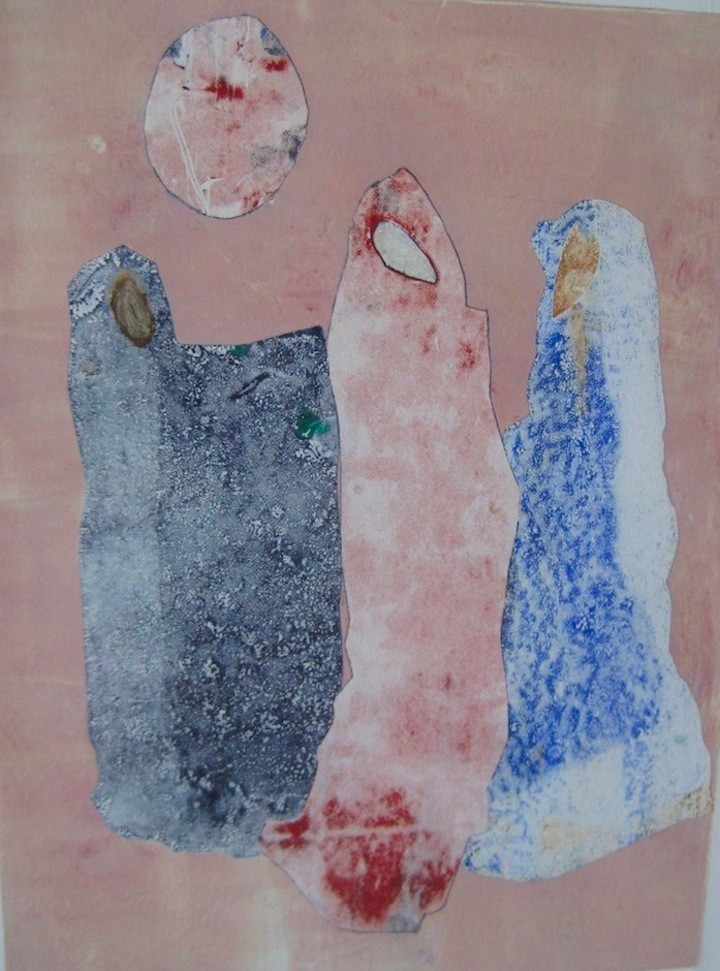
by Muriel Angelil;
Monoprint, 2014; submitted photo.
In response to the U.S. president-elect’s campaign promise to require all Muslims to register with the government, Aleph has sent out a call to all Americans, if that day comes, to register as Muslim in solidarity.
That call comes out of values central to Renewal, Rachel and David say, from a respect for all faiths, and a core Jewish value (Lev. 19:18), to love your neighbor as yourself.
The experience of being treated differently — the ‘Othering’ that David Markus talks about — is also the name of the Berkshire Art Association’s biennial juried show. In November, it filled the Lichtenstein Center for the Arts in Pittsfield with abstract paintings, collages and drawings.
The art association sent out a call for work reflecting on experiences of exclusion and separation. More than 30 artists from throughout the Northeast had work in the exhibit — from a twenty-year veteran of the U.S. military who served two tours in Iraq to an African-American Pittsfield High School graduate now studying art at Williams College.
On Nov. 13, the Pittsfield organization WordxWord hosted an afternoon of poetry and storytelling on the same theme — WordxWord uses spoken word, poetry and storytelling to celebrate diversity and creativity and make connections.
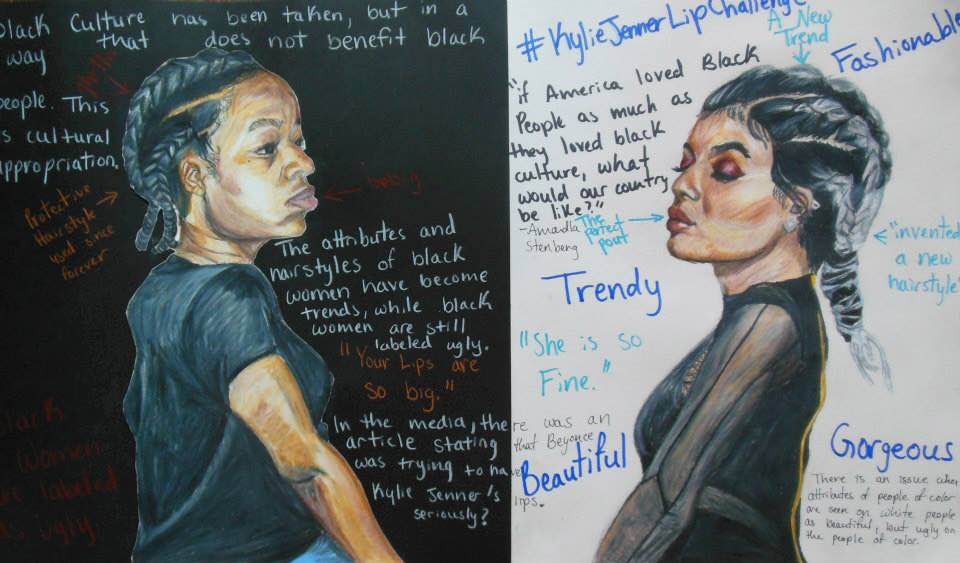
Four of those poets have given us permission to share there work here. We thank Izzy; our second poet, who has asked to remain anonymous; Sage; and Doni Smith.
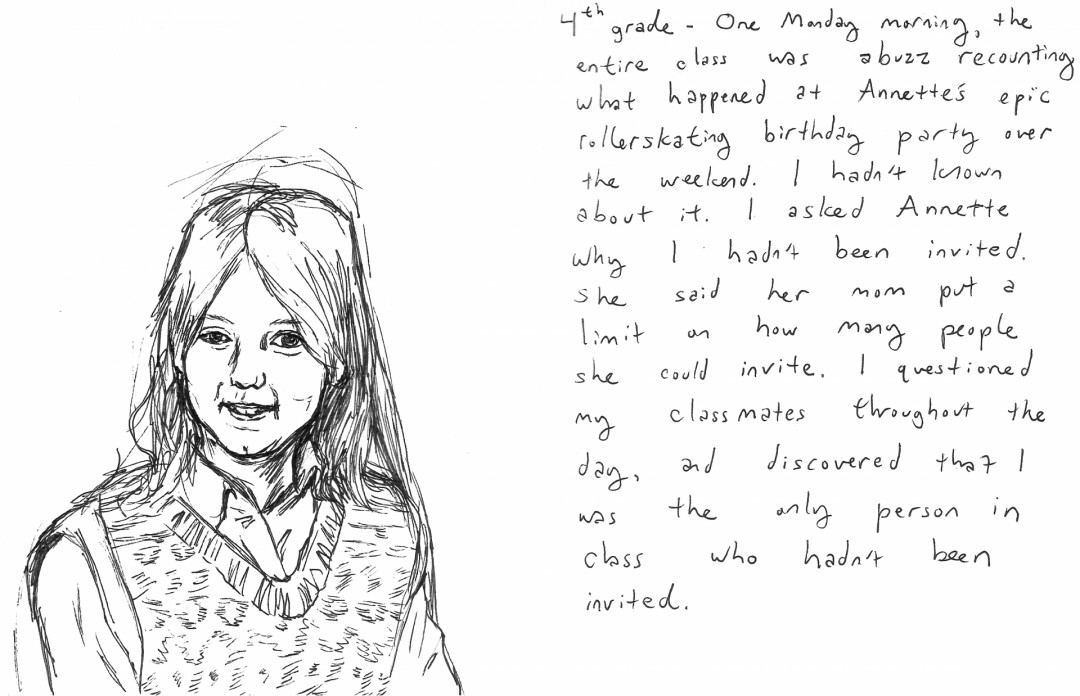
Looking Ahead
On Saturday, Jan. 7, on the 76th anniversary of Franklin Delano Roosevelt’s Four Freedoms speech, a new Four Freedoms Coalition will invite the Berkshire community to unite against hate and bigotry in all its forms. The Berkshire County branch of the NAACP, BRIDGE, Berkshire Immigrant Center, United Africans of the Berkshires, and the United American Muslim Association of the Berkshires and others will gather for a rally and march in downtown Pittsfield.
The Four Freedoms Coalition is a non-partisan, diverse coalition of community organizations and people working together to unite the community and reaffirm the American values outlined in President Roosevelt’s speech:
Freedom from fear
Freedom from want
Freedom of speech
Freedom of religion.
All are welcome. To find out more, check out the Four Freedoms Coalition on Facebook or email [email protected]
*
On Jan. 29 at 3 p.m., Doni Smith and WordXWord will welcome the new year with a free poetry reading to celebrate sharing and caring and reflect on the consequences of greed at MCLA’s Gallery 51, at 51 Main St., North Adams.
Nine days after the presidential inauguration, poets and spoken word artists will bear witness to a world where greed appears to have no limits, and yet every day holds moments of generosity and compassion. The event will accompay Josh Ostraff’s exhibition, OFA ATU, which opens Jan. 26.
*
Also in Pittsfield, Georgene Poliak has formed All Band Together as an initiative in compassion and solidarity. At the holiday Shindy at Shire City Sanctuary, she showed arm bands with a crescent and a star that she is making out of upcycled t-shirts and sweaters. They recall the bands that Jews in Europe were made to wear under the Nazi occupation. But these mean the opposite — they mean that people of many faiths can stand together.
*
And in the spring, new artists will come to Mass MoCA to create and perform work inspired by Nick Cave’s ‘Until.’ Internationally acclaimed dancer and choreographer Bill T. Jones will present a new solo work on March 4.
And choreographer, writer, and actress Okwui Okpokwasili will create and offer a site-specific dance on April 7.
Okwui Okpokwasili “Bronx Gothic” trailer from Peter Born on Vimeo.
Grammy-winnter and living legend Mavis Staples, known worldwide as a voice in R&B, Gospel, Soul, folk, rock and blues, will also perform at Mass MoCA on March 25.
And Toshi Reagon and Dorrance Dance will return to the ’62 Center at Williams College with tap masters Derick Grant and Dromeshia Sumbry-Edwards.




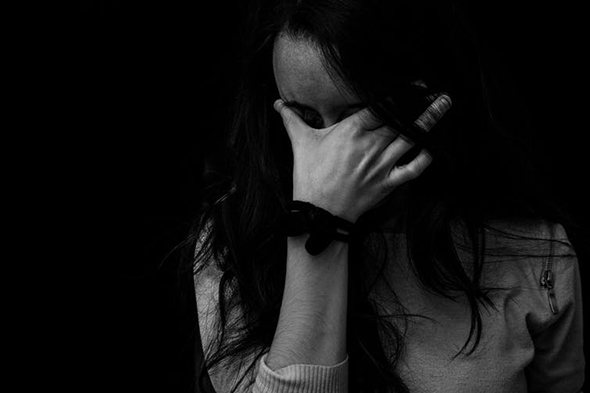












You must be logged in to post a comment.